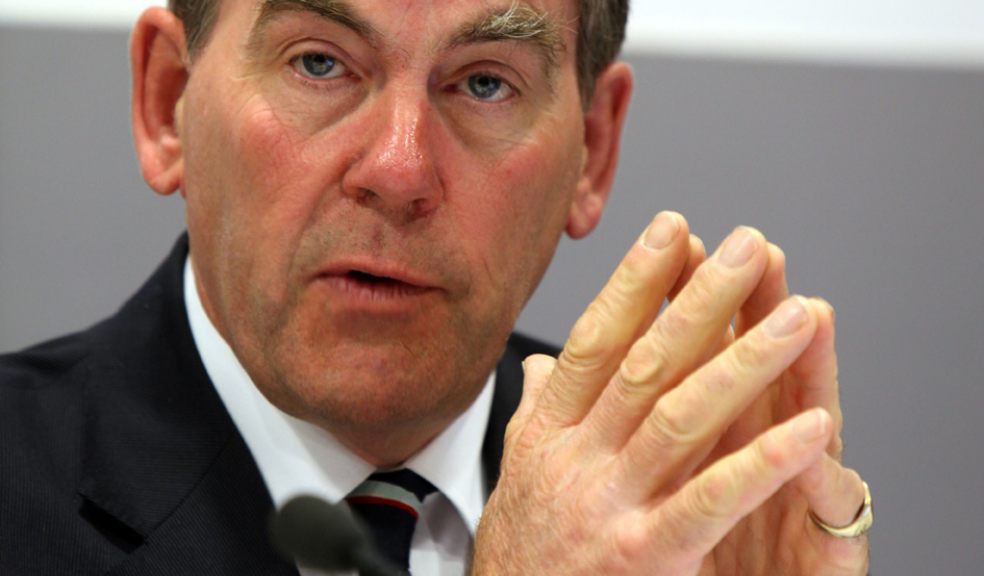
Devon & Cornwall should have the ‘best rural, urban and coastal police service’ says Tony Hogg
Devon and Cornwall’s Police and Crime Commissioner Tony Hogg is reinforcing his aim to make a real difference for policing in our rural areas.
The Devon and Cornwall Force has a vision of being the ‘best rural, urban and coastal police service’ and the allocation of resources between these three areas has been long debated. Tony Hogg has always stressed that there will be no ‘poor relation’ in this respect and has quickly reassured those outside our major cities, towns and holidays destinations, that there will not be a perceived ‘favourite’ when it comes to allocating policing resources.
The Commissioner has recently published his Police and Crime plan for Devon, Cornwall and the Isles of Scilly. At the core is a commitment to inspiring our communities, large or small... rural, urban or coastal... to play a bigger part in policing. Increasing the council tax precept for policing by 2% will enable the Commissioner to maintain police officer numbers at almost 3,100 and not to drop to nearly 2,800, which had been the plan before the PCC election. Tony Hogg and the Chief Constable have been working closely to ensure that our front line policing is protected as much as it can be against the backdrop of tough economic times which has seen a 20% cut in government funding.
By maintaining officer numbers above 3000, it gives neighbourhood policing a bigger profile. The Commissioner will also be increasing the number of Special Constables in Devon and Cornwall by 200 over a four-year period, and many of these will be linked to rural communities. In fact, he is actively encouraging villages to supplement their own local ‘neighbourhood watch’ programmes by putting a representative forward for training as a special constable. The presence of a ‘uniform’ can make a real difference in the detection and reduction of crime in our communities. Indeed, on his travels around the area so far, Tony Hogg has heard the familiar message that people want to see ‘bobbies on the beat’... someone who knows everyone, and who is known by everyone. It’s the old fashioned values of policing which many people can really identify with.
However there are no easy answers to this challenge, particularly at a time when we face considerable financial pressures.
Robust and traditional policing methods are central to our future success and there has been significant and productive joint working with the police in recent months. For example, setting up a rural partnership group and supporting watch scheme
The Commissioner is absolutely committed to making sure rural crime is tackled robustly, with a fair share of resources, combining those traditional policing methods with some fresh, new, thinking too.
Tony Hogg says:
“There are so many aspects to rural crime, and it costs private landowners, rural businesses and individual householders millions of pounds every year. It poses a real threat to the stability of our rural economy. We must understand the real impact it makes and how it seriously affects so many lives.
“There is a wide variety of crime prevalent in our rural communities. Everything from the theft of tools, fuel, metal, machinery and livestock, to fly-tipping, trespass and wildlife crime. There are many others of course, and when you add in more well publicised crimes, such as domestic and sexual abuse, alcohol and drug related crime and traffic issues, it’s is easy to understand why the careful use of resources and a well constructed rural policing strategy is so important."
The Commissioner has a good working relationship with Chief Constable Shaun Sawyer. Much work has gone into the development of this plan and the PCC role ensures that he will monitor how well it is delivered by the force. It’s vital that the most effective way to co-ordinate policing activity across our rural areas is identified so that it is capable of tackling the priorities demanded by the local communities.
This will require the assistance of partner agencies, private businesses, voluntary and charitable organisations and of course individual members of the community themselves.
The strategy will provide the best policing response and service for those issues identified as causing risk, harm and vulnerability with our rural communities.
Tony Hogg says:
“Rural crime costs millions of pounds each year, and I can give you an assurance that I will be working alongside Chief Constable Shaun Sawyer to reduce this significantly. The real impact goes way beyond the monetary losses, and that is why it is a major priority.”
Don't forget, you can ask any burning questions you have about crime and policing to Tony Hogg via ted@thedailyuk.com and he will answer them in a future blog on The Exeter Daily














